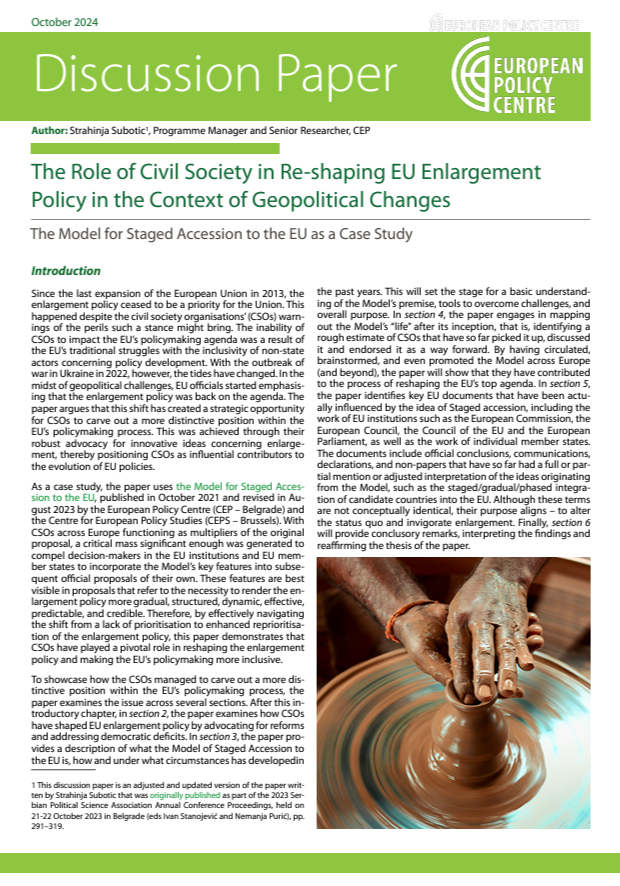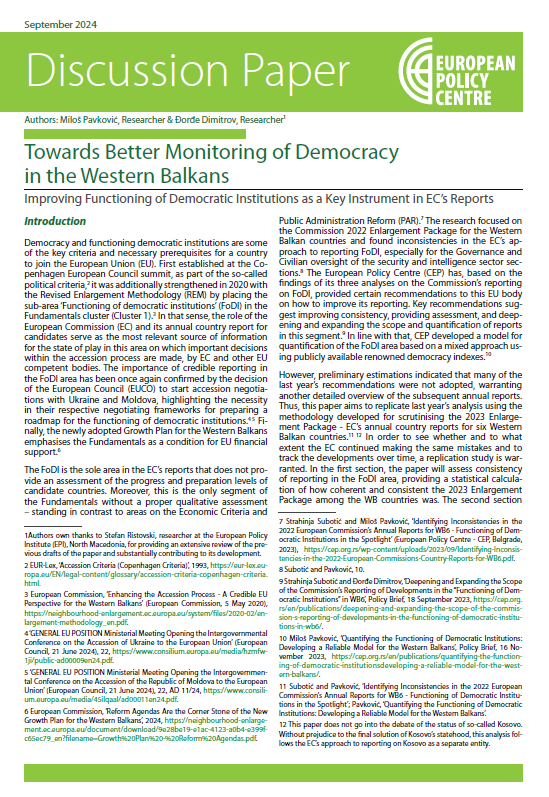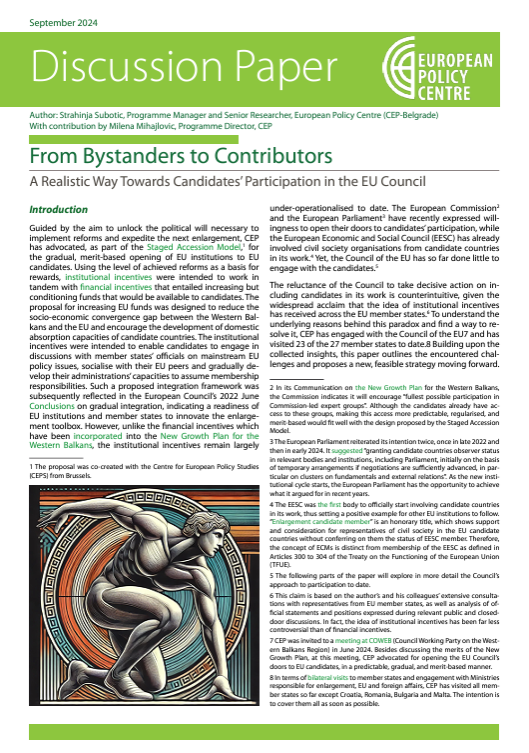Headquarters: Svetog Nauma 7, 11000
Office address: Đorđa Vajferta 13, 11000
Phone:: +381 11 4529 323
Kosovo is a potential candidate for membership in the European Union (EU) as it formally submitted its application in December 2022. Compared to the rest of the Western Balkans, its European perspective is particularly clouded due to the lack of a comprehensive legally binding agreement with Serbia on normalisation of relations, as well as a result of refusal of five EU Member States (MS) to recognize the country as an independent state. Because of this situation, relations between Kosovo and the EU remain within the confines of constructive ambiguity and are unable to be made more plausible than a ‘European perspective’ for Kosovo. Although the Stabilisation and Association Agreement (SAA) entered into force in April 2016, it is an EU-only agreement with a clear position that deeper ties between Kosovo and the EU depend on ‘objective circumstances’ – which is crucially taken to mean when Kosovo is recognized by all EU MS. In this context, the EU institutions, and particularly the European Commission (EC), have often had to resort to improvisation in order to promote European integration for Kosovo. As political ambiguity limits the scope of engagement and fosters an asymmetry in the way the EU treats Kosovo compared to the rest of countries of the region, it becomes the main stumbling block in the EU’s approach towards Kosovo.
The purpose of this paper is to examine potential alternatives with respect to the implementation of enlargement policy on the part of the EU and towards Kosovo. In this context, the paper analyses the application of the Staged accession model (the Model) in the case of Kosovo and how it might unlock its European integration potential. This paper is organized into five main sections, opening by discussing the overall shortcomings and challenges of the EU’s current approach to enlargement vis-à-vis Kosovo. The third section of this paper focuses concretely on the potential of the Model and what it would mean in practice for Kosovo by examining the two key challenges.
The fourth section provides a map of the stakeholders and focuses on who would support and who would be sceptical of the Model, while the fifth section concludes the paper with detailed discussion of its practical implementation in the case of Kosovo.
This paper is part of the National Issue Paper Series developed within the project “Support for further development of the model of the Western Balkans staged accession to the European Union“ implemented by the European Policy Centre (CEP – Belgrade) and the Centre for European Policy Studies (CEPS – Brussels). The Project is funded by the Open Society Foundations (OSF).
The author of this publication is Ramadan Ilazi, Independent Expert, Kosovo.


